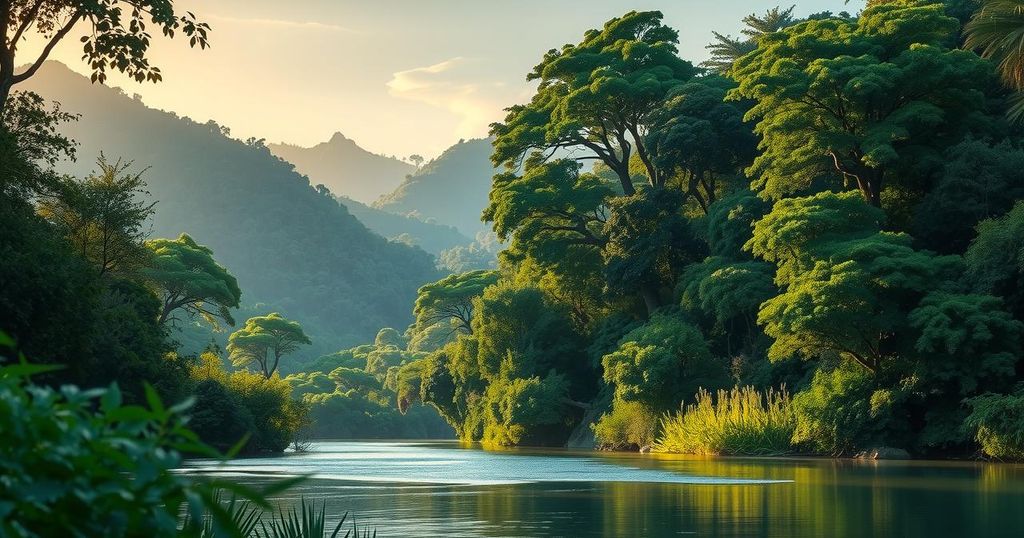Guinea has approved gold mining in an area critical for endangered western chimpanzees, despite warnings of significant ecological damage. The Australian company Predictive Discovery plans to mine at the Bankan site, containing millions of ounces of gold, leading to potential displacement and habitat loss for local chimpanzee populations. The project has raised considerable environmental concerns, particularly regarding its impact on fragile ecosystems.
The government of Guinea has granted an environmental compliance certificate to an Australian mining company, Predictive Discovery, enabling the extraction of gold within a habitat critical to the survival of the endangered western chimpanzee. This approval follows the acceptance of a comprehensive environmental and social impact assessment conducted for the company’s Bankan Gold project, located in the northeast region of Upper Niger National Park.
Predictive Discovery estimates that the prospective area contains approximately 3.05 million ounces of gold, marking it as the largest gold discovery in West Africa in the last decade. Despite the prospect of significant mineral wealth, the 1,767-page impact assessment warns that mining operations will incur detrimental, long-lasting consequences for wildlife, particularly the western chimpanzee, whose populations reside nearby in the Mafou Forest, a core conservation area.
While the main conservation area is situated approximately 18 kilometers from the mining site, there are indications that the company’s prior exploratory operations have already led to the displacement of several chimpanzees. The assessment predicts that ongoing mining activities will exacerbate habitat destruction and disrupt chimpanzee populations beyond the immediate project area, additionally affecting groundwater levels for an extended period.
Initially, the Bankan project area included sections of the park’s buffer zone; however, Predictive Discovery has committed to relinquishing these portions to address environmental concerns. Mining will now occur in what the company refers to as the “peripheral zone,” a designation aligning with a transition zone permissible for some development according to the park’s management plans.
Aboubacar Samoura, an official with Guinea’s Ministry of the Environment, acknowledged initial concerns regarding the mine’s location but expressed that the ministry encouraged the mining company to withdraw from the buffer zone. He stated, “It is true that it is worrying when we talk about a deposit in a protected area, but on the other hand, we must be positive.” Following the approval of its environmental compliance certificate, Predictive Discovery has moved to apply for a mining license, with operations potentially commencing as early as 2026.
In summary, the Guinean government has sanctioned gold mining activities near the habitat of critically endangered western chimpanzees, despite significant environmental concerns raised. Predictive Discovery’s exploration and planned mining at the Bankan site pose serious risks to local wildlife and ecosystems. While the company has agreed to certain compromises regarding operational boundaries, the potential adverse impacts remain a source of contention among conservationists.
Original Source: news.mongabay.com






